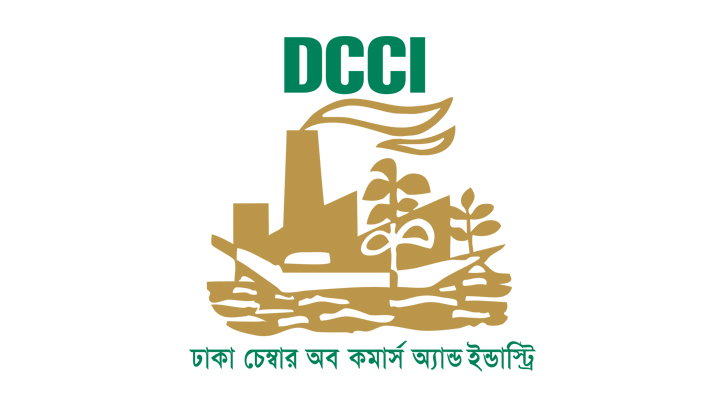Dhaka chamber for widening tax net to revive economy
BI Report || BusinessInsider

DCCI logo
The Dhaka Chamber of Commerce and Industry (DCCI) on Tuesday underscored the need for widening the tax net and ensuring automated tax system to recover the economy.
The chamber made the emphasis while placing its budget recommendation for FY2021-22, said a press release.
DCCI president Rizwan Rahman placed the chamber’s budget recommendations to National Board of Revenue (NBR) Chairman Abu Hena Md Rahmatul Muneem for government’s consideration and to be reflected in the next proposed national budget, reports the Bangladesh Sangbad Sangstha.
This year, the DCCI placed the proposals with a view to reviving post-Covid business confidence, having an easy and business friendly tax structure, widening tax and VAT net, ensuring export diversification and encouraging local industrialization and facilitating investment friendly environment.
The DCCI made a proposal to reduce corporate tax for listed and non-listed companies at a progressive rate of 2.5 percent, 5 percent and 7 percent from 2021-22, 2022-23 and 2023-24 respectively.
The DCCI suggested corporate tax for non-listed companies at 30 percent in FY2021-22, 27.5 percent in FY2022-23 and 25 percent in FY2024-25.
The DCCI also proposed to allow 10 percent tax instead of 20 percent on income of corporate dividend. Besides, if any company invests 5 percent of its taxable income on research and development this investment should be tax free, the DCCI suggested.
Only 24 Lakh tax payers submit their tax return out of 50 lakh registered tax payers. DCCI, therefore, proposes to make the revenue structure fully automated.
As per Finance Act 2020, in most cases, in the service sector, 15 percent VAT and VAT at source both have been deducted. The DCCI wants withdrawal of this VAT cut at source. The DCCI also proposes to increase the maximum limit of annual turnover of Tk4 crore and impose turnover tax based on products’ value addition or profit for the businesses who are out of VAT.
Excise duty has been imposed twice at the time of getting loan from banks, the DCCI proposed to withdraw this system.
The chamber recommended giving tax exemption on investment in greenfield infrastructure projects at least for next 5 years.
International market of Bangladeshi jute is about 62 percent. Presently, local sells of jute products do not have any VAT. The DCCI suggested the NBR to keep this provision for the next five year.
For the leather industry, corporate tax for listed companies is 25 percent and for non-listed companies it is 32.5 percent.
In order to enhance export diversification, the DCCI proposed to reduce this rate of corporate tax for leather industry and allow them a chance of bond licence renewal duration for three years like the RMG sector. The DCCI also proposed tax exemption for the local manufacturers of machineries and accessories used for electric vehicle charging station.
NBR Chairman Abu Hena Md Rahmatul Muneem emphasised on tax and revenue process simplification which will reduce complications and increase revenue generation.
He also urged the industries and businesses to be more compliant which will create a space of belief and confidence between the businesses and revenue management.
He said that the NBR would try to consider the proposals of DCCI before the budget.
























